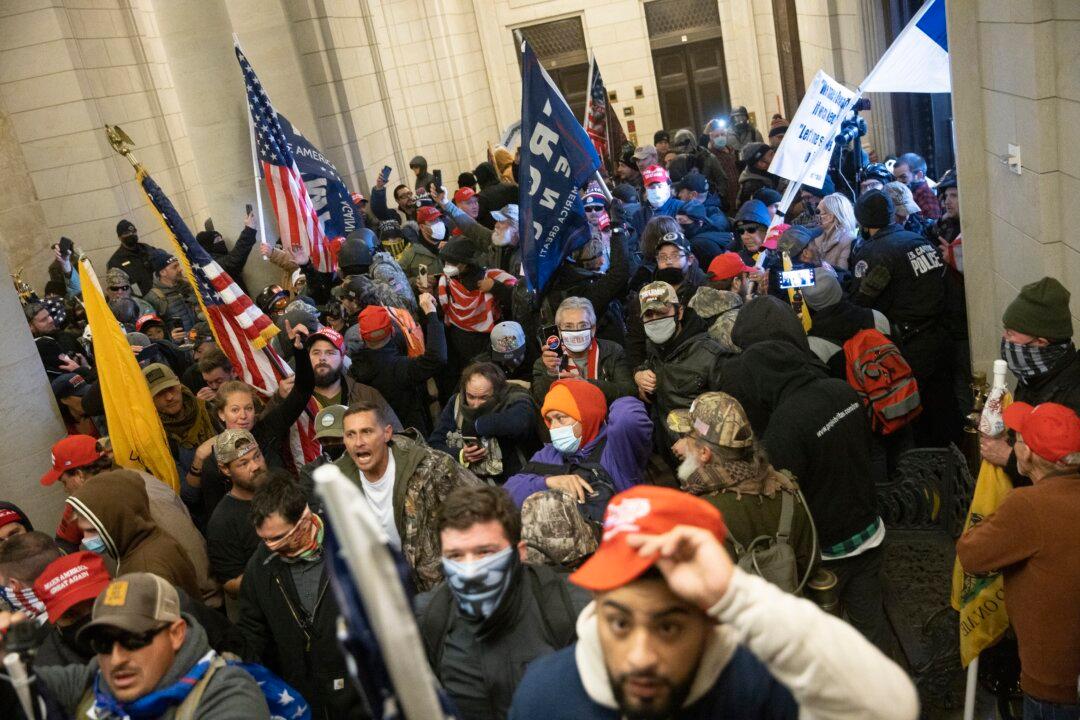Dozens detained in federal prison awaiting trial following the Jan. 6 breach of the U.S. Capitol building are being subject to solitary confinement, a lack of required medical care, and restricted access to defense counsel, according to two attorneys and the father of a defendant.
Lawyers John Pierce and Steven Metcalf II, who represent several of the defendants, told EpochTV’s “The Nation Speaks” that among the close to 500 arrested so far in connection with the Jan. 6 incident, more than 50 are being held pretrial in solitary confinement for 23 hours a day, in conditions that are “unconstitutional” and violate “every single basic human right.”





